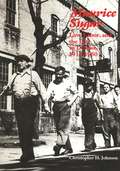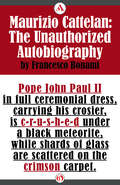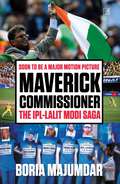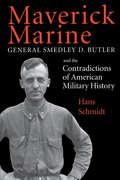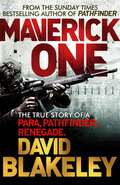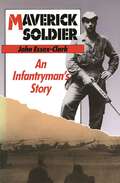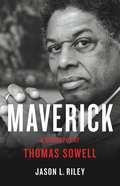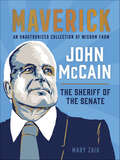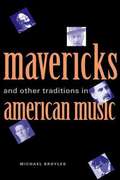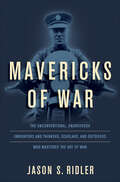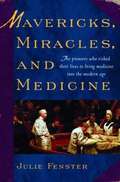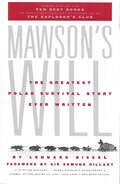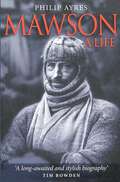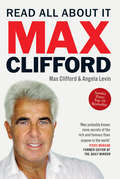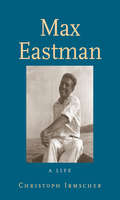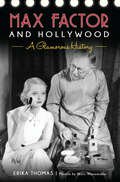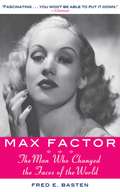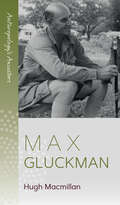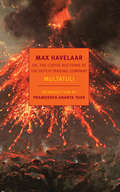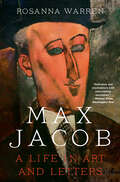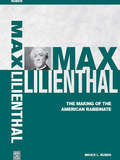- Table View
- List View
Maurice Sugar: Law, Labor, and the Left in Detroit, 1912-1950
by Christopher H. JohnsonIt was Maurice Sugar, labor activist and lawyer for the United Auto Workers, who played a key role in guiding the newly-formed union through the treacherous legal terrain obstructing its development in the 1930s. He orchestrated the injunction hearings on the Dodge Main strike and defended the legality of the sit-down tactic. As the UAW's General Council, he wrote the union's constitution in 1939, a model of democratic thinking. Sugar worked with George Addes, UAW Secretary-Treasurer, to nurture rank-and-file power. A founder of the National Lawyers' Guild, Sugar also served as a member of Detroit's Common Council at the head of a UAW "labor" ticket. <P><P> By 1947, Sugar was embroiled in a struggle within the UAW that he feared would destroy the open structures he had helped to build. He found himself in opposition to Walter Reuther's bid to run the union. A long-time socialist, Sugar fell victim to mounting Cold War hysteria. When Reuther assumed control of the UAW, Sugar was summarily dismissed. <P><P> Christopher Johnson chronicles the life of Maurice Sugar, from his roots in Michigan's Upper Peninsula, through his resistance with Eugene V. Debs to World War I, and on to the struggles of the early 1930s to bring the union message to Detroit. Firmly grounded on the historiography of the UAW, Johnson shows the importance of Sugar and the Left in laying the foundation for unionizing the auto industry in the pre-UAW days. He documents the work of the Left in building a Black-labor coalition in Detroit, the importance of anti-Communism in Reuther's rise to power, and the diminution of union democracy in the UAW brought about by the Cold War. Maurice Sugar represents a force in American life that bears recalling in these barren years of plant closings.
Maurizio Cattelan
by Francesco BonamiMaurizio Cattelan is undoubtedly the best known and most controversial contemporary Italian artist. His works include Hanged Children, the sculpture of John Paul II being struck by a meteorite--which was removed from a square in Milan due to public outcry--and, most recently, Finger, which was displayed in front of the Italian Stock Exchange headquarters. All of his works have aroused heated debate in the art world and the general public. Some believe Cattelan is one of the brightest geniuses of contemporary art, while others consider him only a vulgar--yet clever--provocateur. But who exactly is Maurizio Cattelan? Why does everything he creates cause a scandal?Francesco Bonami, who is the curator of numerous exhibitions and has collaborated with Cattelan on many projects, tells the true story, from the beginning of Cattelan's career to his current resounding success. In this officially unofficial biography, Maurizio Cattelan plays along and tells his story through Bonami, offering, as one of his most provocative works yet, his point of view on art and society--one that, as always, will have people talking.
Maverick Commissioner
by Boria MajumdarThe Indian Premier League. Its mere mention forces cricket fans across the world to sit up and take notice. World cricket&’s most valued property has only grown stronger with time. Conceived and implemented by Lalit Modi in 2008, the IPL has forever revolutionised the way cricket is marketed and run globally. Modi had built and orchestrated the tournament by his own rules and after the stupendous success of the IPL, the same rules were questioned by the administration. Modi was subsequently banned for life.How and why did it happen? What went on behind the scenes? How did it all start to go wrong between Modi and the others? Are there secrets that will never come out? This book is all about everything you never got to know. Each fact corroborated by multiple sources who were in the thick of things, Maverick Commissioner is a riveting account of the IPL and the functioning of its founder, Lalit Kumar Modi. Did Modi have a long telephone conversation with a BCCI top brass the day he left India for good? What really was discussed? Is Lalit Modi the absent present for the IPL and Indian cricket?Soon to be made into a film by Vibri Motion Pictures, Maverick Commissioner documents things exactly as they happened. No holds barred and no questions left out. It doesn&’t judge Lalit Modi. All it does is narrate his story. Who is the real Lalit Modi? Let the readers decide.
Maverick Marine: General Smedley D. Butler and the Contradictions of American Military History
by Hans Schmidt&“Traces Butler&’s stormy career . . . As pure biography, Maverick Marine is a colorful story about a swashbuckling establishment-shaker.&”—Publishers Weekly Smedley Butler&’s life and career epitomize the contradictory nature of American military policy through the first part of this century. Butler won renown as a Marine battlefield hero, campaigning in most of America&’s foreign military expeditions from 1898 to the late 1920s. He became the leading national advocate for paramilitary police reform. Upon his retirement, however, he renounced war and imperialism and devoted his energy and prestige to various dissident and leftist political causes. This biography of Smedley Butler is &“a sympathetic portrait of a Victorian officer-warrior who lost his way as he advanced in rank and his America and his Marine Corps changed after World War I&” (The Journal of American History). &“This long-awaited biography is as crisp as a David Brinkley commentary. Fact-packed and exquisitely documented.&”—Naval Institute Proceedings
Maverick One: The True Story of a Para, Pathfinder, Renegade
by David BlakeleyThe explosive sequel to the bestselling PATHFINDER.For the first time ever an elite British operator tells the gruelling story of his selection into the Pathfinders - Britain's secret soldiers. Pathfinder selection is a brutal physical and psychological trial lasting many weeks. It rivals that of the SAS and takes place over the same spine-crushing terrain, in the rain-and-snow-lashed wastes of the Welsh Mountains. For two decades no one has been able to relate the extraordinary trials of British elite forces selection - until now.Captain David Blakeley goes on from completing selection to serve with the Pathfinders in Afghanistan post 9/11, where he had a gun held to his head by Al Qaeda fighters. From there he deploys to Iraq, on a series of dramatic behind- enemy-lines missions - wherein he and his tiny elite patrol are outnumbered, outgunned and trapped. Maverick One is unique and extraordinary, chronicling the making of a warrior. It culminates in Blakeley fighting back to full recovery from horrific injuries suffered whilst on operations in Iraq, to go on to face SAS selection.
Maverick One: The True Story of a Para, Pathfinder, Renegade
by David BlakeleyThe explosive sequel to the bestselling PATHFINDER.For the first time ever an elite British operator tells the gruelling story of his selection into the Pathfinders - Britain's secret soldiers. Pathfinder selection is a brutal physical and psychological trial lasting many weeks. It rivals that of the SAS and takes place over the same spine-crushing terrain, in the rain-and-snow-lashed wastes of the Welsh Mountains. For two decades no one has been able to relate the extraordinary trials of British elite forces selection - until now.Captain David Blakeley goes on from completing selection to serve with the Pathfinders in Afghanistan post 9/11, where he had a gun held to his head by Al Qaeda fighters. From there he deploys to Iraq, on a series of dramatic behind- enemy-lines missions - wherein he and his tiny elite patrol are outnumbered, outgunned and trapped. Maverick One is unique and extraordinary, chronicling the making of a warrior. It culminates in Blakeley fighting back to full recovery from horrific injuries suffered whilst on operations in Iraq, to go on to face SAS selection.
Maverick Soldier: An Infantryman's Story
by John Essex-ClarkMaverick Soldier is the forthright, nuts-and-bolts account of John Essex-Clark's unmatched experience as a warrior, leader and teacher. Its telling is all of a piece with the man himself—bluff, astute, no-nonsense. In the course of stumbling, as he puts it, from the rank of private to brigadier, Essex-Clark has fought in wars with the Australian, British, United States and Rhodesian armies, and has led in battle Malay, South African, Rhodesian, Vietnamese, British, New Zealand, United States and Australian soldiers. In peacetime came tours of duty in North America and Western Europe. Nicknamed 'Digger' by the Rhodesian Army and 'The Big E' in the Australian, he led by force of personality, drive, common sense and self-confidence. Military readers and armchair witnesses to war will be challenged by his trenchant and timely views on army obsession with technology and the paucity of subtle tactical thinking. Various controversies are aired: whether we were 'pussyfooters' in Vietnam; bastardization at Duntroon; how best to conduct counter-terrorism. He is angered by what he sees as a 'surfeit of military dilettantes and budding bureaucrats and a dearth of warrior-chiefs'. Always one to lead from the front and to trust the courage and good sense of the ordinary infantryman, his interests have been strategy and battle tactics, leadership and training. He writes particularly for today's young soldier whom he loves with an old fashioned generosity, and to whom he can declare with conviction, 'I have no angst about being a soldier'.
Maverick: A Biography of Thomas Sowell
by Jason L RileyA biography of Thomas Sowell, one of America's most influential conservative thinkers.Thomas Sowell is one of the great social theorists of our age. In a career spanning more than a half century, he has written over thirty books, covering topics from economic history and social inequality to political theory, race, and culture. His bold and unsentimental assaults on liberal orthodoxy have endeared him to many readers but have also enraged fellow intellectuals, the civil-rights establishment, and much of the mainstream media. The result has been a lack of acknowledgment of his scholarship among critics who prioritize political correctness.In the first-ever biography of Sowell, Jason L. Riley gives this iconic thinker his due and responds to the detractors. Maverick showcases Sowell's most significant writings and traces the life events that shaped his ideas and resulted in a Black orphan from the Jim Crow South becoming one of our foremost public intellectuals.
Maverick: An Unauthorized Collection of Wisdom from John McCain, the Sheriff of the Senate
by Mary ZaiaA lifetime of wisdom from a true American patriotThe country is more polarized than it has been for decades, but John McCain is the rare public figure who has earned the respect of colleagues and constituents on both sides of the aisle. A model for bipartisanship and political integrity, in his forty years in politics McCain has never been afraid to buck trends or ruffle a few feathers. His words are more important today than ever.Sample quotes:“In prison, I fell in love with my country.”“Nothing in life is more liberating than to fight for a cause larger than yourself, something that encompasses you but is not defined by your existence alone.”“Americans never quit. We never surrender. We never hide from history. We make history.”“It is your character, and your character alone, that will make your life happy or unhappy.”
Maverick: the Personal War of a Vietnam Cobra Pilot
by Dennis J. Marvicsin Jerold A. GreenfieldMemoir of a Vietnam combatant.
Mavericks and Other Traditions in American Music
by Michael BroylesFrom colonial times to the present, American composers have lived on the fringes of society and defined themselves in large part as outsiders. In this stimulating book Michael Broyles considers the tradition of maverick composers and explores what these mavericks reveal about American attitudes toward the arts and about American society itself. Broyles starts by examining the careers of three notably unconventional composers: William Billings in the eighteenth century, Anthony Philip Heinrich in the nineteenth, and Charles Ives in the twentieth. All three had unusual lives, wrote music that many considered incomprehensible, and are now recognized as key figures in the development of American music. Broyles goes on to investigate the proliferation of eccentric individualism in all types of American music--classical, popular, and jazz--and how it has come to dominate the image of diverse creative artists from John Cage to Frank Zappa. The history of the maverick tradition, Broyles shows, has much to tell us about the role of music in American culture and the tension between individualism and community in the American consciousness.
Mavericks of War: The Unconventional, Unorthodox Innovators and Thinkers, Scholars, and Outsiders Who Mastered the Art of War
by Jason S RidlerA military historian sheds light on the maverick thinkers who hatched outlandish plots and shaped warfare from WWI to Vietnam and beyond. During World War I, Oxford-trained archeologist Lawrence of Arabia used his knowledge of the Middle East to help organize the Arab revolt against the Ottoman Empire. In this entertaining and insightful book, Jason Ridler profiles the intellectuals, outsiders, and eccentrics who followed in Lawrence&’s footsteps across the next hundred years of warfare—those who relied on creativity, curiosity, and outside-the-box thinking to shape battlefields from World War II and Vietnam to Iraq and Afghanistan. These men were Ivy Leaguers and Oxford scholars, anthropologists and archeologists. Among them were an ad executive, an international activist, a Peace Corps veteran, an émigré journalist (and former teenage member of the French Resistance), and a diplomat. These mavericks and oddballs—both men and women—were not always heralded or heeded, and sometimes they were hated. But they each challenged traditional military thought and helped win wars, secure peace, and change the face of modern military conflict.
Mavericks of the Sky: the First Daring Pilots of the U.S. Air Mail
by Barry Rosenberg Catherine MacaulayHistory of the introduction of the air mail service, and biographies of the first pilots.
Mavericks, Miracles, and Medicine: The Pioneers Who Risked Their Lives to Bring Medicine into the Modern Age
by Julie M. FensterMavericks, Miracles, and Medicine brings to life stories of the pioneering geniuses, eccentrics, and freethinkers who moved beyond the conventions of their day at great personal risk and often with tragic results to push forward the boundaries of modern medicine.
Mawson's Will: The Greatest Survival Story Ever Written
by Sir Edmund Hillary Lennard BickelMAWSON'S WILL is the dramatic story of what Sir Edmund Hillary calls "the most outstanding solo journey ever recorded in Antarctic history." For weeks in Antarctica, Douglas Mawson faced some of the most daunting conditions ever known to man: blistering wind, snow, and cold; loss of his companion, his dogs and supplies, the skin on his hands and the soles of his feet; thirst, starvation, disease, snowblindness - and he survived. Sir Douglas Mawson is remembered as the young Australian who would not go to the South Pole with Robert Scott in 1911, choosing instead to lead his own expedition on the less glamorous mission of charting nearly 1,500 miles of Antarctic coastline and claiming its resources for the British Crown. His party of three set out through the mountains across glaciers in 60-mile-per-hour winds. Six weeks and 320 miles out, one man fell into a crevasse, along with the tent, most of the equipment, all of the dogs' food, and all except a week's supply of the men's provisions.Mawson's Will is the unforgettable story of one man's ingenious practicality and unbreakable spirit and how he continued his meticulous scientific observations even in the face of death. When the expedition was over, Mawson had added more territory to the Antarctic map than anyone else of his time. Thanks to Bickel's moving account, Mawson can be remembered for the vision and dedication that make him one of the world's great explorers."A riveting account . . . makes Mawson's achievement a symbol of the desire to live." -- The New York Times Book Review"A powerful reading experience." -- Publishers WeeklyFrom the Trade Paperback edition.
Mawson: A Life
by Philip AyresSir Douglas Mawson was Australia's pre-eminent Antarctic explorer, a tall, quiet scientist who survived several gruelling polar expeditions, and went on to play a notable role in the academic and research establishment.He is most famed for an ill-fated expedition in 1913, in which he trekked hundreds of kilometres alone, without supplies, after his two companions perished. But he was also the main architect of Australia's official Antarctic presence in the first half of the twentieth century, instrumental in the Australian Government's decision to claim part of Antarctica, and in the founding of Australia's major organization for Antarctic exploration and research.Philip Ayres' life of Mawson is the definitive biography of the polar explorer, who died in 1958. In this richly researched and well-illustrated work, he paints a picture of a man who was a brave and resourceful hero, but also a deeply flawed personality.
Max Clifford: Read All About It
by Angela Levin Max Clifford'Max knows more secrets of the rich and famous than anyone in the world'Piers MorganMax Clifford is the media guru everyone calls when they want to know about a celebrity story or a celebrity's relationship with the media. Starting out as a junior member of the press department at EMI, he has become one of the most influential figures in today's society, and a household name. What is less known is the other side to Max: the stories he keeps out of the papers; his stand against corruption; his mischievous sense of humour; his dedication to helping people from all walks of life;his love for his wife of nearly forty years who tragically died of cancer; and his devotion to his daughter Louise who, at six,was diagnosed with juvenile rheumatoid arthritis and is permanently disabled. The essential memoir for those interested in both PR and celebrity.
Max Eastman: A Life
by Christoph IrmscherThe definitive biography of a radical activist and intellectual Max Eastman (1883–1969) was a prolific writer, radical, and public intellectual who helped shape the twentieth century. While researching this masterful work, acclaimed biographer Christoph Irmscher was granted unprecedented access to the Eastman family archive, allowing him to document little-known aspects of the famously handsome and charismatic radical. Considered one of the “hottest radicals” of his time, Eastman edited two of the most important modernist magazines, The Masses and The Liberator, and campaigned for women’s suffrage and world peace. A fierce critic of Joseph Stalin, Eastman befriended and translated Leon Trotsky and remained unafraid to express unpopular views, drawing criticism from both conservatives and the Left. Set against the backdrop of several decades of political and ideological turmoil, and interweaving Eastman’s singular life with stories of the fascinating people he knew and loved, this book will have broad interdisciplinary appeal in twentieth-century history and politics, intellectual history, and literary studies.
Max Factor and Hollywood: A Glamorous History
by Erika ThomasThe story of the makeup artist who changed the film industry—and the world of modern cosmetics. Includes photos. When Polish wigmaker and cosmetician Max Factor arrived in Los Angeles at the dawn of the motion picture industry, &“make-up&” had been associated only with stage performers and ladies of the oldest profession. Appalled by the garish paints worn by actors, Factor introduced the first &“flexible&” greasepaint for film in 1914. With a few careful brush strokes, a lot of innovation, and the kind of luck that can happen only in Hollywood, Max Factor changed the meaning of glamour. His innovations can be experienced in every tube of lipstick, palette of eye shadow, and bottle of nail lacquer used today. Join author Erika Thomas as she reveals the makeup guru's expert beauty tips and the story of how he created the most iconic golden-era looks that are as relevant today as they were nearly a century ago.
Max Factor: The Man Who Changed the Faces of the World
by Fred E. BastenNice women never wore makeup. Even the word was taboo in polite society--until Max Factor entered the scene. Born in Poland in 1877, Factor worked as a beautician for the Russian royal family, the Romanovs. In 1904, he fled to America, where he opened a cosmetics store in Los Angeles. Creating makeup originally for silent films, then the talkies, and, ultimately, color motion pictures, Factor designed looks for Katharine Hepburn, Rita Hayworth, Bette Davis, and countless other beauties of the day. Soon women everywhere wanted to look like their favorite glamorous stars, and Factor was there to help, bringing his innovative cosmetics to the general public. He revolutionized the world of beauty by producing many firsts: false eyelashes, lip gloss, foundation, eye shadow, the eyebrow pencil, concealer, wand-applicator mascara, and water-resistant makeup. A true innovator, he also introduced the concept of color harmony and the celebrity-endorsed cosmetics advertising that forms the glamorous backbone of the modern industry. Max Factor was the father of modern makeup. This is his extraordinary story.
Max Gluckman (Anthropology's Ancestors #6)
by Hugh MacmillanThis handy, concise biography describes the life and intellectual contribution of Max Gluckman (1911-75) who was one the most significant social anthropologists of the twentieth century. Max Gluckman was the founder in the 1950s of the Manchester School of Social Anthropology. He did fieldwork among the Zulu of South Africa in the 1930s and the Lozi of Northern Rhodesia/Zambia in the 1940s. This book describes in detail his academic career and the lasting influence of his Analysis of A Social Situation in Modern Zululand (1940-42) and of his two large monographs on the legal system of the Lozi. From the Introduction: Max Gluckman was the most influential of a group of social anthropologists who emerged from South Africa during the 1930s into what was essentially a new academic discipline. His description and analysis of events in real time implied a rejection of contemporary social anthropological practice, of the ‘ethnographic present’, and of hypothetical or conjectural reconstructions and an acceptance of the need to study ‘primitive’ societies in the context of the modern world.
Max Havelaar: Or, the Coffee Auctions of The Dutch Trading Company (Library Of The Indies)
by MultatuliA fierce indictment of colonialism, Max Havelaar is a masterpiece of Dutch literature based on the author's own experience as an adminstrator in the Dutch East Indies in the 1850s.A brilliantly inventive fiction that is also a work of burning political outrage, Max Havelaar tells the story of a renegade Dutch colonial administrator’s ultimately unavailing struggle to end the exploitation of the Indonesian peasantry. Havelaar’s impassioned exposé is framed by the fatuous reflections of an Amsterdam coffee trader, Drystubble, into whose hands it has fallen. Thus a tale of the jungles and villages of Indonesia is interknit with one of the houses and warehouses of bourgeois Amsterdam where the tidy profits from faraway brutality not only accrue but are counted as a sign of God’s grace. Multatuli (meaning “I have suffered greatly”) was the pen name of Eduard Douwes Dekker, and his novel caused a political storm when it came out in Holland. Max Havelaar, however, is as notable for its art as it is for its politics. Layering not only different stories but different ways of writing—including plays, poems, lists, letters, and a wild accumulation of notes—to furious, hilarious, and disconcerting effect, this masterpiece of Dutch literature confronts the fixities of power with the protean and subversive energy of the imagination.
Max Horkheimer and the Foundations of the Frankfurt School
by John AbromeitThis book is the first comprehensive intellectual biography of Max Horkheimer during the early and middle phases of his life (1895-1941). Drawing on unexamined new sources, John Abromeit describes the critical details of Horkheimer's intellectual development. This study recovers and reconstructs the model of early Critical Theory that guided the work of the Institute for Social Research in the 1930s. Horkheimer is remembered primarily as the co-author of Dialectic of Enlightenment, which he wrote with Theodor W. Adorno in the early 1940s. But few people realize that Horkheimer and Adorno did not begin working together seriously until the late 1930s or that the model of Critical Theory developed by Horkheimer and Erich Fromm in the late 1920s and early 1930s differs in crucial ways from Dialectic of Enlightenment. Abromeit highlights the ways in which Horkheimer's early Critical Theory remains relevant to contemporary theoretical discussions in a wide variety of fields.
Max Jacob: A Life In Art And Letters
by Rosanna WarrenA comprehensive and moving biography of Max Jacob, a brilliant cubist poet who lived at the margins of fame. Though less of a household name than his contemporaries in early twentieth century Paris, Jewish homosexual poet Max Jacob was Pablo Picasso’s initiator into French culture, Guillaume Apollinaire’s guide out of the haze of symbolism, and Jean Cocteau’s loyal friend. As Picasso reinvented painting, Jacob helped to reinvent poetry with compressed, hard-edged prose poems and synapse-skipping verse lyrics, the product of a complex amalgamation of Jewish, Breton, Parisian, and Roman Catholic influences. In Max Jacob, the poet’s life plays out against the vivid backdrop of bohemian Paris from the turn of the twentieth century through the divisions of World War II. Acclaimed poet Rosanna Warren transports us to Picasso’s ramshackle studio in Montmartre, where Cubism was born; introduces the artists gathered at a seedy bar on the left bank, where Max would often hold court; and offers a front-row seat to the artistic squabbles that shaped the Modernist movement. Jacob’s complex understanding of faith, art, and sexuality animates this sweeping work. In 1909, he saw a vision of Christ in his shabby room in Montmartre, and in 1915 he converted formally from Judaism to Catholicism—with Picasso as his godfather. In his later years, Jacob split his time between Paris and the monastery of Benoît-sur-Loire. In February 1944, he was arrested by the Gestapo and sent to Drancy, where he would die a few days later. More than thirty years in the making, this landmark biography offers a compelling, tragic portrait of Jacob as a man and as an artist alongside a rich study of his groundbreaking poetry—in Warren’s own stunning translations. Max Jacob is a nuanced, deeply researched, and essential contribution to Modernist scholarship.
Max Lilienthal: The Making of the American Rabbinate
by Bruce L. RubenExplores the life and thought of Rabbi Max Lilienthal, who created a new model for the American rabbinate.
